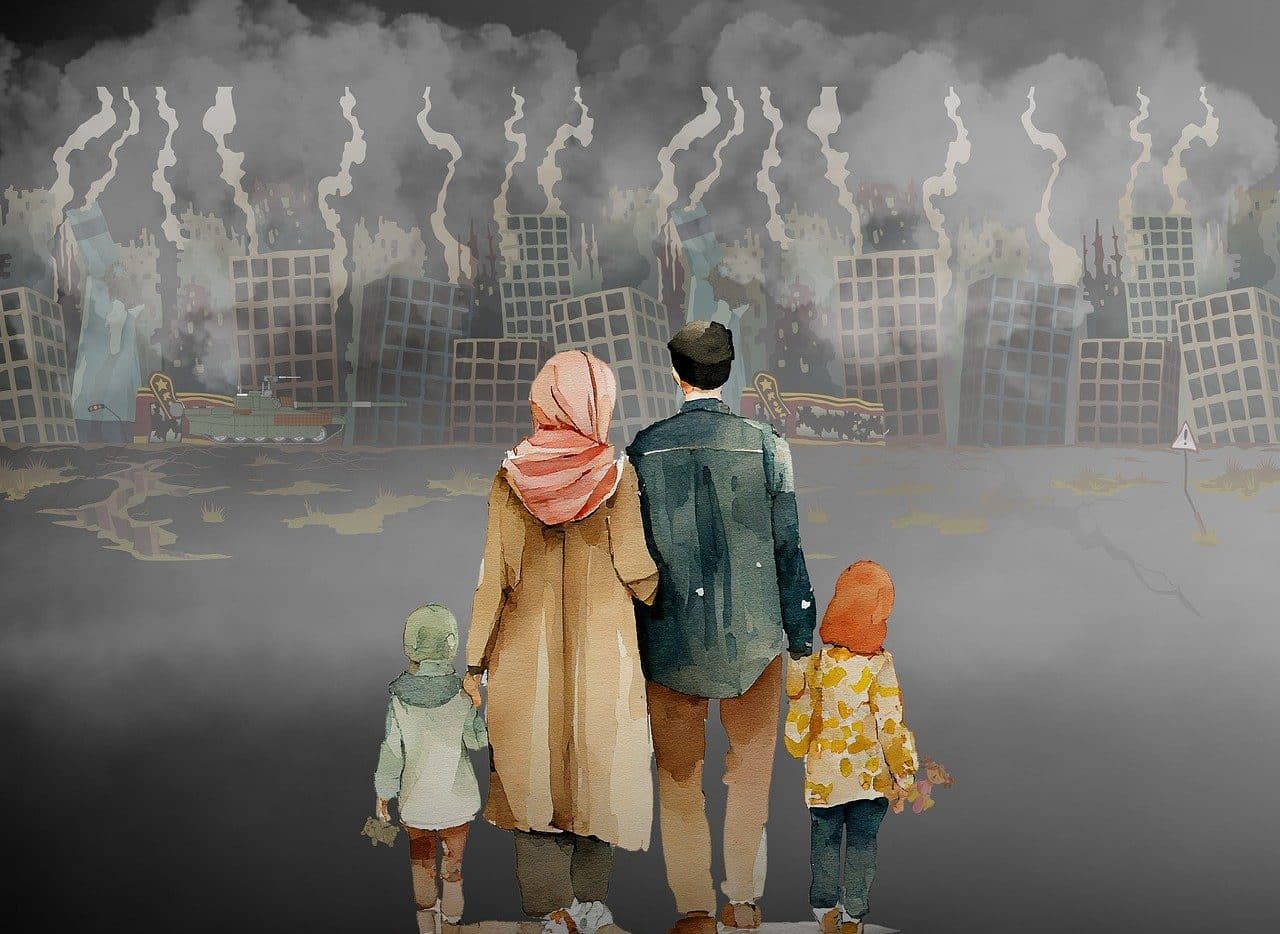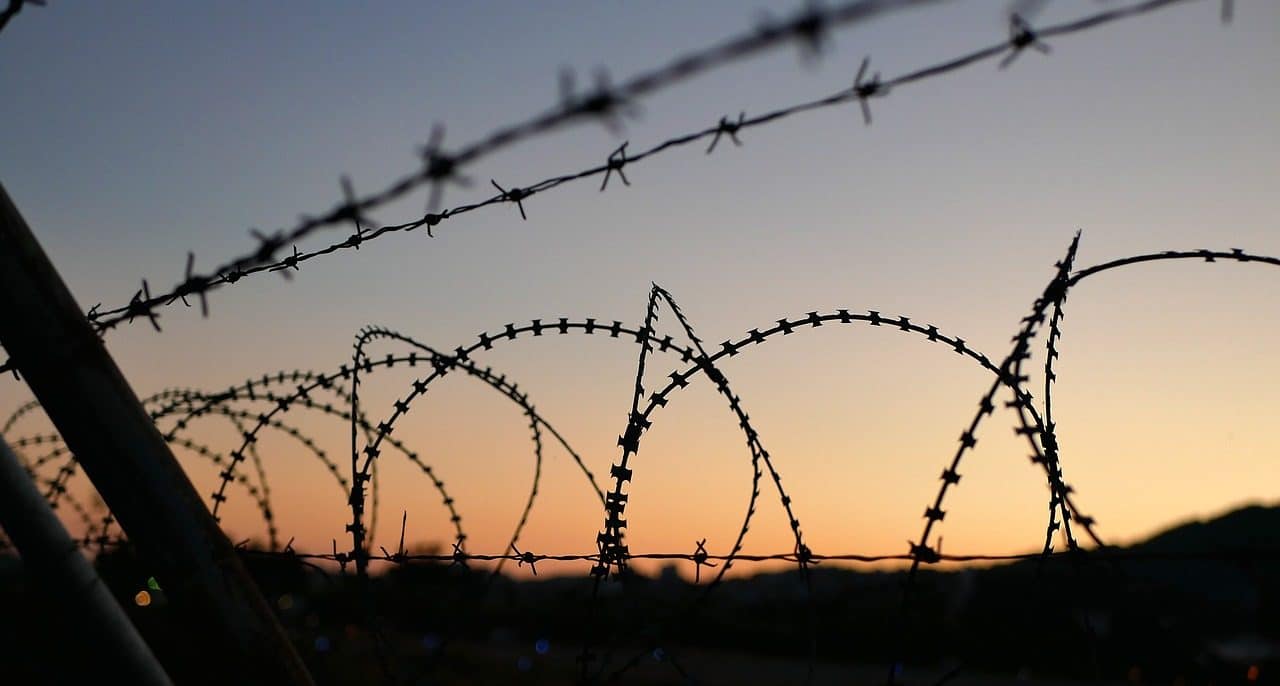
Emigration usually increases in the face of a humanitarian crisis.
Emigration is the act and consequence of emigrating : moving away from the place of origin or residence to settle in a different place. Human beings usually emigrate to different parts of their own country or abroad to improve their living conditions; certain animals, to adapt to their reproduction or feeding needs.
The term emigration, which comes from the Latin word emigratio , also refers to the group of individuals who emigrate from a place . It should be noted that the emigrant from a country becomes an immigrant upon arriving in his or her new land: in the phenomenon of migration , therefore, a person is first an emigrant (when leaving his or her country) and then an immigrant (when settling in another). .
As we already indicated, we must consider that, beyond international migration , there is internal migration . A person can leave their home to settle in other regions of their nation.
Reasons for emigration
Emigration takes place for multiple reasons. One of the most common is economics . When someone cannot satisfy their material needs in their own country, they may make the decision to emigrate to another that offers them, at least in theory, greater opportunities for progress. Many Latin Americans, in this framework, emigrate to the United States , Europe or Australia , which are therefore countries open to immigration.
We must point out that economic ambitions are far from the most important reason why some people decide to leave their country. In many cases, it is the lack of vocational opportunities in their own land that drives them to take this difficult but enriching step. Artists and scientists who are born in the “wrong” place (that is, in a country where the government does not provide them with the necessary support to develop) often become emigrants to find the respect they deserve.

Border security seeks to control emigration and prevent human trafficking.
The fear of change
On the other hand, emigration causes a division between people who dare to take this step and those who fear being uprooted and choose to stay in a country that forces them to suffer needs. Fear is our worst enemy, and in these cases its consequences can be seen very clearly: a country with a high unemployment rate, which does not care about the maintenance of public roads and which subjects its inhabitants to a degree of considerable insecurity cannot be called “home,” but there are those who prefer that to endless new experiences and opportunities.
This fear is not unfounded: crossing the border is not easy, since it entails a series of changes that can mark the person in an irreversible way and require efforts that until then they would have considered impossible to make. Learning a new language or adapting to new terms and uses, the cultural differences that are seen on a daily basis, products that are no longer available and new ones, television, cinema, radio and friendships are some of them. of the aspects that emigration violently overturns to the ground and forces us to review to stay on our feet.

Emigration can modify the demographics of territories.
Emigration as a survival resource
In other cases, emigration obeys the objective of preserving life , threatened by wars, environmental catastrophes or social or political persecutions. Years ago, for example, millions of Syrians had to undergo forced displacement and leave their land due to civil war, seeking asylum or becoming refugees in other nations.
It is important to mention that emigration can take place legally (when the traveler meets all the requirements required by the States for the entry and exit of citizens) or irregularly (if the person crosses a border through places that are not authorized and without comply with formal procedures). Depending on the country, illegal emigration can lead to a ban on re-entry, something no one wants to face, especially if it is a desperate search for new opportunities.
You must always consider, therefore, the immigration laws to avoid having problems with the authorities. It is necessary to analyze immigration policy issues such as work visas, residence permits, etc., to avoid punishments or even deportation.
The integration
The integration of emigrants to their host land is key to coexistence. Although globalization promoted multiculturalism , discrimination is still present in many societies, which show signs of xenophobia and racism .
Crossing borders can modify the legal situation of an individual, but that does not mean that they lose their human rights (which are inalienable and inalienable). However, when there is a migration crisis, the movement of the undocumented usually generates rejection and many people are not interested in the causes of migration. Undocumented immigrants, thus, not only do not receive support or help to regularize the situation, but they are also victims of attacks of different kinds.
Even migrants who have their documentation in order sometimes receive attacks and ridicule, whether for their way of speaking, their clothing, their customs or their beliefs. Even their children, born in the new land, face difficulties. It must be considered that social peace always requires tolerance, respect and empathy, without forgetting that immigrants make great contributions to economic and cultural development.
